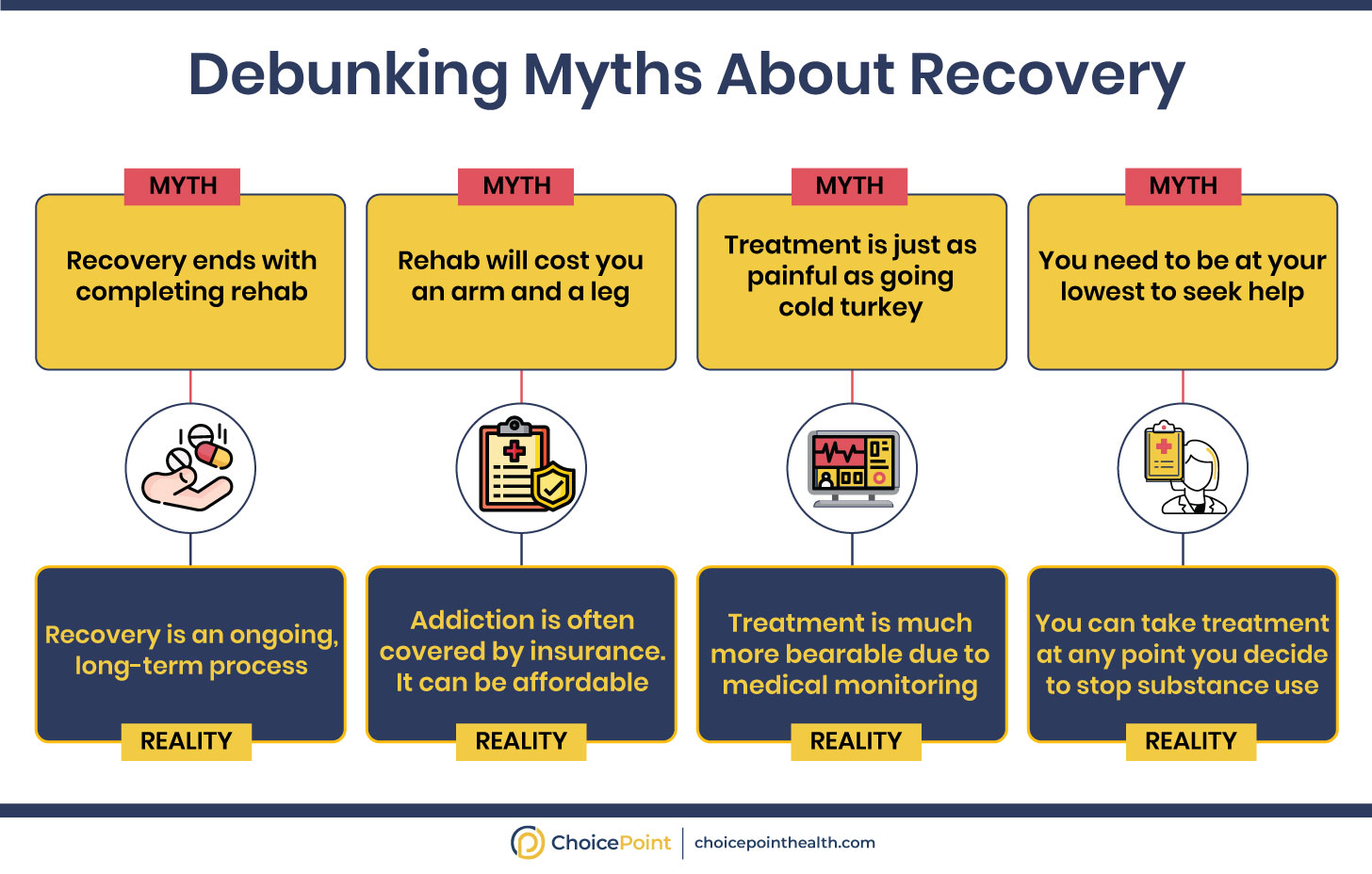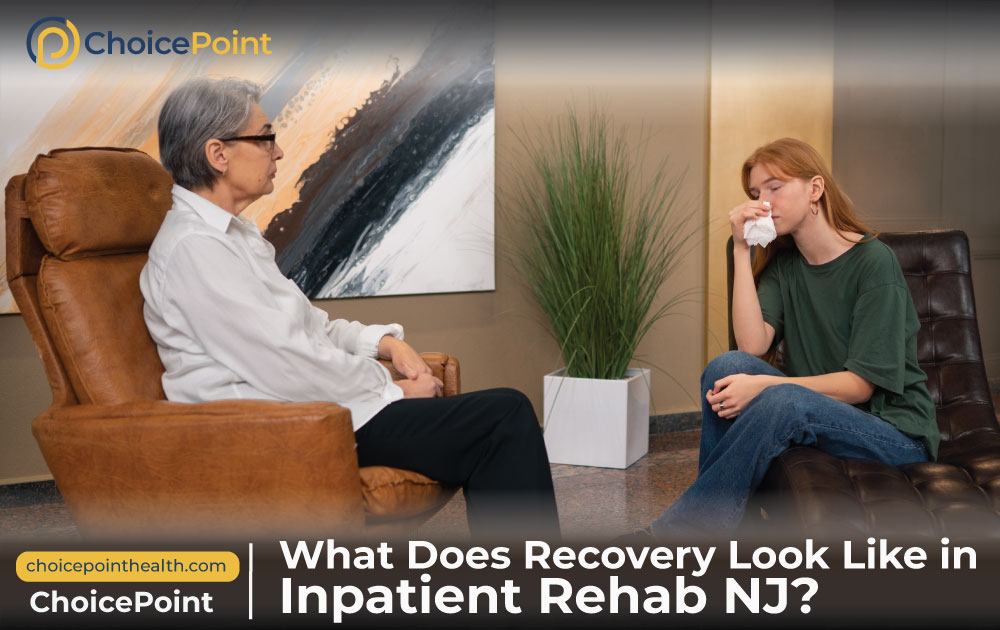Addiction is a big health concern in the US. A person struggling with alcohol or drug addiction may feel helpless in front of this disease. However, there are many people in the country benefiting from addiction treatment. Over 85,000 people were admitted to NJ addiction facilities in 2022. Many people become nervous thinking about rehabilitation. While it can be slightly difficult initially, recovery at an inpatient rehab NJ can also look like a ray of hope and a door to a new life. We will bust all myths about addiction treatment.
Table of Contents
About Inpatient Rehab
Inpatient rehabilitation is a structured program that includes intensive 24-hour care for a particular duration of time. Inpatient rehab is ideal for individuals with severe addictions, such as opioid use disorders.
How Does a Day Look Like In an Inpatient Rehab NJ?
Inpatient rehab is highly structured and is intended to get our bodies habitual to a newer and healthier routine. A typical day in rehab will look like this.
Between 7 AM to 9 AM: Waking up
9 AM: Taking scrumptious breakfast and taking medications (if prescribed)
10 AM: Talking to your therapist
11 AM: Group meditation or counseling session
Noon: Taking an educational class on addiction and recovery
3 PM: Engaging in a personal hobby or a recreational activity
7 PM: Taking dinner
This is a rough overview of what a day can look like in an inpatient setting. This activity can differ depending on the program or the rehab you choose. Your routine can be extremely personal to your goals.

Did you know? Studies show that areas with rehab facilities also see a reduction in crimes. This shows that the importance of rehabilitation cannot be overstated.

Did you know? Studies show that areas with rehab facilities also see a reduction in crimes. This shows that the importance of rehabilitation cannot be overstated.
What Does Recovery Look Like in Inpatient Rehab NJ
Recovery is a very individual process that will look largely different for everyone. However, the processes are similar, and an inpatient rehab usually involves three primary treatments.
1. Gradual Stabilization of Withdrawal
Yes, stopping drugs is painful due to the withdrawal, but the first step, i.e., detox, is aimed at stabilizing a patient’s condition both physically and emotionally. With the help of medical staff, the difficult part becomes bearable. Withdrawal symptoms that are taken care of include:
- Nausea
- Vomiting
- Changes in body temperature
- Insomnia
- Anxiety or depression
You know you are in the right hands when you are at a facility. The guilt of always being intoxicated also goes away, especially when daily counseling sessions are going on.
Contact us at 844.445.2563 or enter your information in this form to get professional help from our addiction specialists.

4 Common Myths About Addiction Recovery
2. Intensive-Therapy Addressing Psychological Needs
Addiction is also a major contributor to the development of mental health issues. It also ruins interpersonal relationships, financial stability, and personal development. Reviving everything back to normal requires a lot of patience and commitment, which can be difficult on your own due to withdrawal.
Intensive therapy daily can help patients overcome psychological turmoil. Specialized programs like dual diagnosis treatments are ideal for individuals experiencing mental illnesses and addiction simultaneously. If this resonates with you, our staff can help you get over it. Call at 844.445.2563 or fill out this form. Some issues involve:
- Fear
- Guilt
- Loneliness
- Feeling like something is missing
- Boredom
- Anger
These feelings are normal. However, these can move a person towards relapsing. Due to a safe and secure environment, inpatient rehabilitation will gradually help patients help patients navigate challenges. The following therapies are used in therapy:
- Cognitive-Behavioral Therapy
- Dialectical-Behavioral Therapy
- Group Therapy
- Family Therapy
- Individual Therapy
3. Skill-Building and Relapse Preventing
Patients learn new skills to deal with stress and other issues that come along with addiction. These skills will include:
- Stress management
- Developing healthy habits
- Communication
- Trigger management
Learning these essential skills is vital for long-term sobriety. This is because, outside the rehab, individuals have to face real-life challenges. Relapse can be prevented when patients have strategies to deal with triggers.
4. Healthy Meals
People with addiction often ignore their physical health. Not eating appropriately renders them physically weak. In inpatient facilities, meals are carefully planned and balanced to support the healing journey. Apart from reversing the damage from addiction, balanced meals can stabilize mood, improve cognitive function, and enhance the body’s ability to combat stress, cravings, and withdrawal symptoms.
ChoicePoint: All-Inclusive Inpatient Rehab NJ
With a dedicated team of seasoned professionals and a healthy atmosphere, ChoicePoint has all the essential resources to assist you in recovery. Our holistic treatment approach encompasses the following:
ChoicePoint offers a wide spectrum of services tailored to your needs, whether you opt for inpatient rehabilitation, outpatient, partial care, or virtual treatment alternatives. Our facility also accepts insurance from most public and private insurers. All you need to do is verify your insurance here.
People Also Ask…
People can have many concerns regarding inpatient treatment, especially if they do not have experience with addiction. Our FAQ session will try to answer most of the questions.
How Long Does Inpatient Rehab Last?
The duration of an Inpatient rehab can last anywhere between 7 days to a few months, depending on the patient’s condition, the program they choose, the severity of addiction, and the substance abuse.
What Is the Role of Inpatient Rehabilitation?
The role of inpatient rehab is to offer ideal care to individuals suffering from addiction. This may include being in a trigger-free environment, getting healthy meals, and learning to cope with stress to prevent relapse.
What Is Another Name for a Residential Treatment Facility?
Residential treatment can be interchangeably used with inpatient rehab. A small difference is that residential rehab is more in a homely setting where the stay is slightly longer. Inpatient rehab, on the other hand, has a shorter duration.
What Emotions Do You Have When in Recovery?
While negative emotions like feeling guilty, sad, and irritable usually prevail, recovery can also be very tricky. A person may feel sad at one moment, but the next moment can bring happiness. This changes from person to person.
What Are the 5 Recovery Skills?
- Communication skills
- Developing healthy interpersonal relationships
- Understanding and avoiding triggers
- Self-awareness
- Commitment and resilience
Medical Disclaimer:
ChoicePoint aims to improve the quality of life for people struggling with substance use disorder and mental health issues. Our team of licensed medical professionals research, edit and review the content before publishing. However, this information is not intended to be a substitute for professional medical advice, diagnosis, or treatment. For medical advice please consult your physicians or ChoicePoint's qualified staff.










Review What Does Recovery Look Like in Inpatient Rehab NJ?.